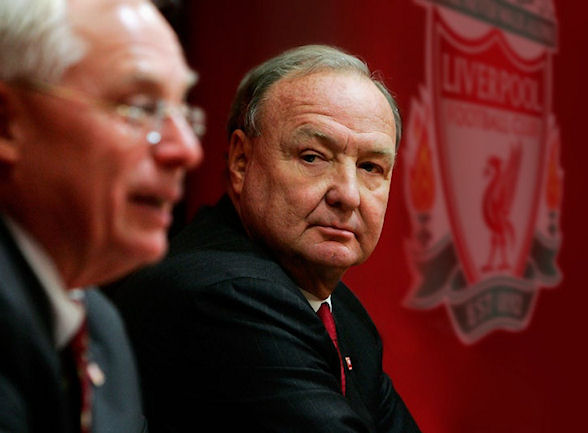This article first appeared in the May/Jun 2013 issue of World Gaming magazine.
A young Arsenal side very nearly pulled off a second leg miracle on March 14, but their Champions League exit at the hands of Bayern Munich ensured this season is the first time since 1995/96 no English club has reached the final eight of the competition. As the Bundesliga and La Liga are gaining more power, is this the end of the Premier League’s golden era?

Borussia Dortmund knocked out Manchester City in the group stage
The four English representatives in this year’s Champions League will no doubt look back with regret when it comes to the circumstances surrounding their respective eliminations. Alex Ferguson could certainly point his finger at Turkish referee Cüneyt Çakır, whose controversial dismissal of Nani proved the tipping point of Manchester United’s return leg loss to Real Madrid at Old Trafford. Arsenal’s quest ended courtesy of some defensive howlers on home soil, leaving them a mountain to climb at Bayern Munich’s Allianz Stadium. Chelsea and Manchester City should have done better were it not for the speculation surrounding their managers with their European dismay very much a reflection of their domestic problems.
The Premier League’s waning force hasn’t been an overnight occurrence. The writing was on the wall last season. Sure, Chelsea went on to be crowned champions but the fact they were the only English side in the semi-finals should have sounded a warning. It could also be argued their journey to the top of Europe was a combination of both team spirit and pure luck rather than performance. During that season both Manchester United and Manchester City were knocked out in the group stage while Arsenal was humiliated by AC Milan in the last 16.
Premier League devotees are accustomed to the big clubs such as Manchester United, Chelsea and Liverpool featuring at the business end of the Champions League rather than Galatasaray or Málaga, who are enjoying their debut season in the competition. Only three years ago Premier League clubs dominated the semi-finals, let alone the quarter-finals. In 2008/09 Chelsea, Manchester United and Arsenal took all but one slot in the semi-finals, the third time in a row three English clubs had dominated the final four.

Arsenal became the last English club eliminated in the Champions League final 16
This truly was the Premier League’s “golden era” – an era that began when a Russian billionaire named Roman Abramovich took over west London club Chelsea in the summer of 2003. During the Premier League’s craziest period of splashing the cash, England was a dreamland for top players and managers. Names like José Mourinho, Didier Drogba, Fernando Torres and Cristiano Ronaldo enjoyed mouth-watering salaries in England while the financially-struggling Serie A (Italy) and Bundesliga (Germany) had no means to match their English counterparts.
The first major blow to the dominance of the top English clubs was Liverpool’s dramatic fall from grace. Former co-chairmen Tom Hicks and George Gillett put the club in danger of administration. The self-destruction of the Reds started in 2009/10 and it is hard to see them recovering in the short term. Liverpool’s decline signaled the end of the traditional “Big Four”. In all honesty, these four British giants will always have the power to challenge the European elites for tradition, fan base and financial stretch. The same can’t be said for Tottenham and Manchester City when they represent the Premier League in Europe given they have traditionally struggled outside England. Arsenal now finds themselves in a similar boat to Liverpool albeit to a lesser extent. Financially tightened by the debt, the austerity has driven the top players away – either to La Liga (Spain) or to richer domestic clubs.
The disaster began to manifest itself when English clubs began splashing around without worrying about the consequences, while the Bundesliga and La Liga had already begun their redemption. Their secret lies in a focus on academy football – household names such as Thomas Müller, Toni Kroos, Mario Götze and even the super talents of Messi and Pedro all came through local academy systems.
Building a team around locally developed players, sprinkled with a couple of marquee signings each season, looks like the winning trend in an era when reasonable spending is increasingly crucial. Quarter-finalists in the Champions League such as Bayern Munich, Borussia Dortmund and Barcelona are successful examples to follow. English clubs, on the other hand, have only just realized they might have to turn to their own academies. The financial constraints are now biting the English clubs, especially with the regulatory “Financial Fair Play” (FFP) looming. The gap is already there for all to see. The decision by Europe’s most sought-after manager, Pep Guardiola, to select Bayern Munich as his next destination, rather than Chelsea or Manchester City, might be the defining moment for an over-reaching league.

Former American co-chairmen Tom Hicks and George Gillett were largely responsible for Liverpool’s decline
Of course, it is still too early to write the Premier League’s eulogy just yet. After all, dominance isn’t decided over the space of just a few years. As of this season, the Premier League has contributed 33 Champions League quarter-finalists since Blackburn was knocked out of the group stage in 1995/96. La Liga is very close, offering 32 quarter-finalists over the same time span. Italy and Germany boast 23 and 20 respectively.
During the 17
years when English clubs became ubiquitous with the final stages of the Champions League, the Premier League was highly mature in terms of business operation and infrastructure. According to Forbes Manchester United is the world’s most valuable sports brand and their fan base is second to none. Financial prowess assures their future success. Meanwhile, Chelsea and Manchester City are also looking for sustainable ways of bringing success under the constraints of FFP, investing heavily in youth academies of their own.
This is not only a transition period for individual clubs but for the whole league. The big English clubs are making a huge effort to control spending and follow the examples set by Barcelona and Bayern Munich in developing their own academies. Local players such as Danny Welbeck from Manchester United’s academy, Southampton youth product Gareth Bale and young Gunner Jack Wilshere are showing great ability to reach the top. It is not too late to catch up.







